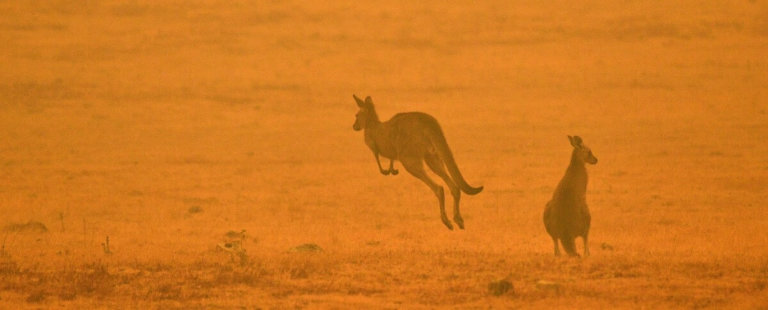
The International Education Association of Australia (IEAA) is developing a carbon-neutral policy in response to the nation’s most dire bushfire disaster to date.
As experts across various industries met in Canberra last Wednesday to discuss the issue, the IEAA had already begun developing a joint statement and action plan. This effort involved international education representatives from all eight states and territories, as well as education and trade departments.
Speaking ahead of the crisis conference he chaired, Education Minister Dan Tehan said, “The federal government will work to fast track the support we can provide to the sector as a result of today’s meeting.”
“We will work with the sector to harness the many good ideas that will make a difference to the education and mental well-being of children in bushfire affected areas,” he assured.
In the past, the IEAA was responsible for creating the Council for International Education’s Collaborative Marketing Framework. The framework provides a guide to critical incident response and ensures the equal distribution of resources in times such as this.
IEAA chief executive Phil Honeywood, who led the creation of the Collaborative Marketing Framework, believes the bushfires call for greater attention and action on mitigating carbon footprint within the education sector.
Among his suggestions are encouraging webinars and teleconferences instead of travelling across borders for work. If a flight is necessary, the least that can be done is donating towards tree replanting efforts.
Honeywood also indicated that the policy developed in this regard is expected to be approved by the end of February 2020.
We’re doubling bushfire disaster recovery payments for children, as part of the $58m package announced today to support families and communities affected by the ongoing bushfire disaster https://t.co/VFJ1tpNeOw
— Scott Morrison (@ScoMo30) January 15, 2020
Academic institutions step up
International education representatives expressed views and ideas on the most pressing matters in light of this national crisis, including health, safety, and stability of school communities as well as the impact on academic research.
Caroline Perkins, executive director of the Regional Universities Network, said research on ecosystems located within the area affected by the bushfire would inevitably be harmed. She called for special considerations for affected researchers, in hopes to mitigate the ruinous impact on their studies.
This series of Australian bushfires has been raging across 10 million hectares since June 2019 and only began to alleviate this week with the help of downpour in affected areas. For comparison, England’s entire land area is 13 million hectares.
The fires are predicted to continue blazing until March.
Throughout this climate disaster, several Australian universities have stepped up to provide crisis accommodation for firefighters and evacuees while serving as fundraising centres for relief efforts. This includes the University of Wollongong (Batemans Bay and Bega campuses) and Charles Sturt University.
Liked this? Then you’ll love…
Universities in Canberra shut down as bushfires blaze on in Australia
International students in Australia are finding transaction fees too costly







